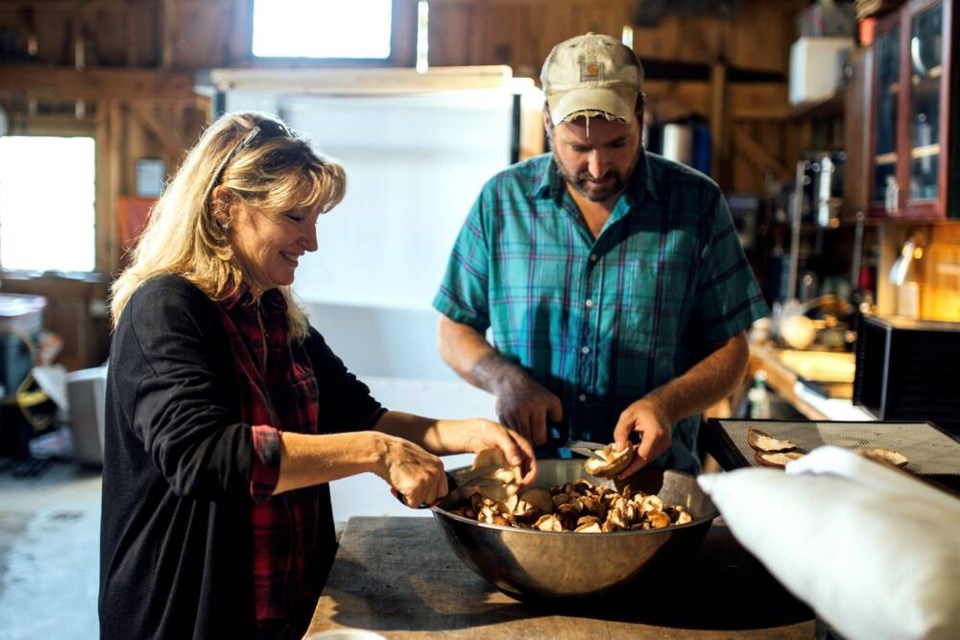As modern science moves quickly to study, peer review and publish truths behind supposed wives tales and inherited wisdom, we are learning more and more about so-called adaptogens.
Adaptogens, sometimes referred to as natural medicines, are substances found in nature, that have been shown to help our bodies ‘adapt’ to the stressors of modern life — worries about finance, family, housing, health, food insecurity, etc — by strengthening our internal systems and immunity, and helping us maintain homeostasis.
We now know, thanks in large part to longevity-obsessed boomers initiating and inspiring adaptogenic research, that when our bodies are out of balance, we are susceptible to chronic disease. It is near impossible today, to reproduce the wild and nutrient-dense diet that supported our ancestor’s chronic disease-free lifestyles, but there are things we can do to reduce exposure.
To my way of thinking, adaptogens provide a means of prevention — a hedge against inevitability.
Wild plants, animals and fungi contain incredibly complex macro and micronutrients, including trace elements that our bodies need to thrive. Industrial agriculture has largely stripped both soil and plants grown in it of essential life force. Animals cultivated within industrialized systems are similarly deprived. We then, as apex consumers, are deprived also.
Three very simple things we can do as consumers and citizens to increase our exposure to nutrient-dense foods, are grow and/or buy food grown in “living soil” that shares its life force with all things grown in and on it, learn about and grow/buy adaptogenic plants and foods, and use our voices and votes to bring a planned end to industrial agriculture and farming, and support small-hold farmers globally.
All of us can do these things to lesser or greater extent. I try to use my voice and my words to help influence change, and I challenge myself to make better buying decisions — doing without things that I really don’t need so that I can pay a premium for things that my body does need.
Shopping at farmers’ markets, and supporting local organic and biodynamic farmers, is a great place to start. I have noticed over time, that market sizes increase alongside demand, and also that organic and adaptogenic offerings in chain grocery stores increases in tandem, in order to remain competitive. With demand and increased supply across a more diverse marketplace, prices drop and more equitable access becomes a possibility.
Who among us would have thought that the local and organic produce selection at the budget “W” chain would compete with the selection at the upscale “W” chain? Baby steps.
Last Saturday, at the Riley Park Farmers’ Market, my husband and I purchased beautiful adaptogenic mushrooms from Whistler Harvest. Shiitake, lion’s mane, pink and king oyster, maitake, and chestnut mushrooms defined the week’s menus.
During my ongoing permaculture education, I’ve learned to cultivate these mushrooms outdoors and indoors, benefitting hands-on from the wisdom of published experts like Steve Gabriel and Paul Stamets. The nomenclature makes my head spin, but the inherent super-powers of fungi inspire me beyond measure.
Shiitake mushrooms have long been celebrated by practitioners or traditional medicine in China, Japan, Russia and Korea. Healthline.com cites published research indicating that shiitakes contain high daily values of riboflavin, niacin, copper, vitamins B5, D, and B6, as well as zinc, selenium and folate.
Shiitakes contain many of the same amino acids as meat, and they boast polysaccharides, terpenoids, sterols, and lipids, some of which have immune-boosting, cholesterol-lowering, and anticancer affects. Relative quantities of elements vary, depending on where and how shiitakes are grown, and like all things, over and/or ill-advised consumption may cause negative side effects.
Shaggy lion’s mane mushrooms are prized for their “scallop-like” flavour. Healthline.com reports lion’s mane’s beneficial bioactive substances and affects on the body, brain, heart and gut. Research indicates that lion’s mane could help protect against dementia, heart disease, cancer, and reduce inflammation, oxidative stress, symptoms of diabetes, nervous system injury, and more.
This week, we leveraged our winter pantry and $40 worth of specialty fungi to create quick and easy deliciousness, including red fife pappardelle, herby frittata, five-spice broth, and black rice risotto. We are adapting.
Laura Marie Neubert is a West Vancouver-based urban permaculture designer. Follow her on Instagram @upfrontandbeautiful, learn more about permaculture by visiting her website or email your questions to her here.
For a taste of permaculture, click on the YouTube link below:
(Video - Courtesy of West Â鶹´«Ă˝Ół»Memorial Library)



